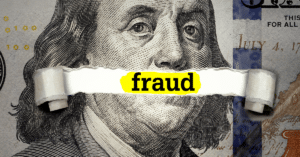Healthcare professionals often see how pharmaceutical companies and healthcare providers interact. Most partnerships follow the rules, but some programs—especially sponsored genetic testing—veer into questionable territory.
These setups can influence prescribing choices and increase costs, making it important for you to recognize and report warning signs. This article covers three signs of sponsored genetic testing fraud and clear steps you can take to report it.
What Is Sponsored Genetic Testing?
Sponsored genetic testing occurs when drug companies pay for genetic tests, often through labs, to help patients identify certain health risks or rare diseases. When done properly, this can be helpful and safe. Confidentiality must always be maintained, with patient and physician data separated from the drug maker’s marketing activities.
Fraud can occur when a company uses sponsored testing to find specific patients, then works with labs to access confidential data. This information is then used for targeted marketing of expensive medications. These schemes may be classified as illegal kickbacks under the Federal False Claims Act. Regulators have issued recent warnings about this growing issue.
3 Signs of Sponsored Genetic Testing Fraud
Sponsored genetic testing programs can sometimes prioritize profits over patient care, leading to unethical practices. It’s important to recognize the warning signs to protect both your patients and your practice.
- Unjustified Volume of Tests. Take note if you notice a sudden spike in genetic testing at your facility. If tests are being ordered in large numbers with no clear medical reason, or extending to patients who are unlikely to need them, this can be a red flag. Templates or orders encouraging broad, untargeted testing may point to pressure from outside interests, rather than good clinical care.
- Document Sharing Between Labs and Pharma. Watch for any sharing of reports between labs and drug companies that reference patient or physician data. Genuine genetic testing programs keep results and personal data confidential. Reports or agreements that appear to give companies insights into who is being tested, what the results are, or include “recommended therapy” language are cause for concern. Linking results to drug marketing undermines the goal of patient-focused care.
- Cozy Relationships Suggesting Kickbacks. Pay attention to unusual connections between pharmaceutical companies, sales representatives, labs, and physicians. Warning signs include payments for consulting or speaking that align with testing referrals or promoting specific drugs. Educational events that feel more like sales pitches, special advisory roles, or labs receiving special resources in exchange for referrals may indicate a kickback arrangement.
How to Report Sponsored Genetic Testing Fraud
If you suspect fraud or unethical practices related to sponsored genetic testing, it’s important to take action. Reporting these concerns not only helps protect patients, but also ensures healthcare systems remain fair and trustworthy.
Step 1: Organize Your Evidence.
Document what you see, noting dates, individuals, and the nature of your concern. Save copies of relevant emails, internal reports, agreements, and any communication showing unusual patterns in testing or financial arrangements. Keep your records organized and secure, as these details build the foundation of your case.
Step 2: Consult a Whistleblower Attorney
Speak with an attorney who specializes in healthcare fraud. These professionals can confidentially review what you’ve collected, provide advice on next steps, and help you understand the reporting process. Your consultation is private and does not require you to proceed further unless you wish.
Step 3: File Your Report
With legal support, your report can be submitted under the False Claims Act, which recognizes and rewards those who expose fraud. If successful, you may receive up to 30% of any funds recovered by the government. The filing process is straightforward, with guidance from your attorney, who will ensure your case is presented effectively.
Turn Red Flags Into Action With a Clear Healthcare Fraud Reporting Path
Spotting sponsored genetic testing fraud is important in maintaining ethical care and protecting healthcare resources. Keep an eye out for unnecessary testing, improper sharing of test data, or unusual business ties between labs and drug companies. By documenting your observations and working with an experienced whistleblower law firm, you can report concerns efficiently and help safeguard patient trust.
Ready to take the first step? Contact DJO Whistleblower Law Group for a free, confidential consultation about sponsored genetic testing fraud at your organization. We only get paid if your case succeeds, and we are committed to helping you secure the maximum reward, up to 30% of recovered funds, for making healthcare safer and more transparent.

authored by Christopher J. Piacentile
Director of Investigations DJO Whistleblower Law Group


